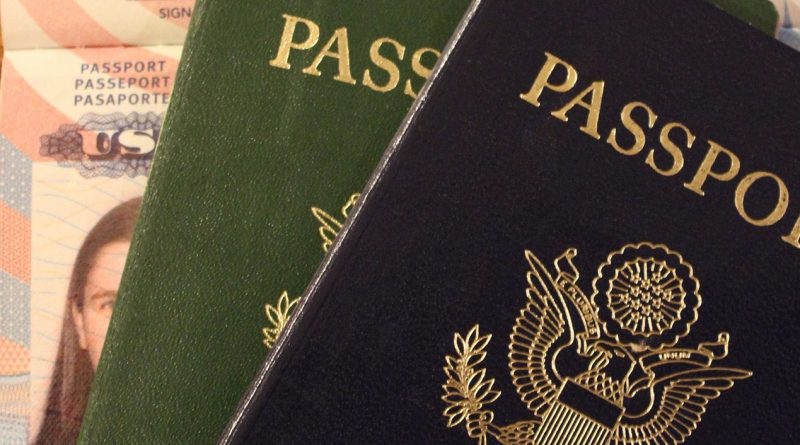Immigration In Germany
Immigration in Germany has been a major contributor to the country’s population growth, economic development, and cultural diversity. With over 11 million immigrants living in Germany, it is one of the largest host countries for international migrants in Europe. The majority of immigrants come from other European countries, such as Turkey, Russia, Poland, and Italy. In recent years, however, Germany has also received a significant number of refugees from war-torn countries such as Syria, Iraq, and Afghanistan.
How Immigration Is Changing Germany Today
Immigration is having a profound effect on Germany today. With an influx of over one million refugees in 2015, the German population has seen significant shifts in recent years. This influx of people is changing Germany in many ways, both positive and negative.
At a cultural level, immigration has led to increased diversity within Germany’s population. This has allowed for new ideas, cultural influences, and perspectives to enter the country. This diversity has enriched Germany in many ways and fostered tolerance within the nation.
From an economic standpoint, immigration has had a positive impact as well. The influx of workers from around the world has increased the productivity of german language translation industries and businesses. Immigrants have also created new economic opportunities, as they often bring with them skills, expertise, and investments that help to drive the German economy.
The influx of immigrants has also had its challenges. There has been an increase in tensions between native Germans and newcomers, leading to some social unrest and conflict. Moreover, Germany’s infrastructure is not always able to support the influx of immigrants, leading to overcrowding and increased strain on resources.
Despite these issues, immigration is still having a positive impact on Germany overall. Immigration has broadened the cultural perspectives within Germany, while simultaneously providing economic benefits through an influx of workers and investment. Immigration continues to play a vital role in Germany’s ongoing development and success.
Understanding the Impact of Immigration on German Society
Immigration has had a profound impact on German society over the past few decades. The arrival of millions of refugees and immigrants, mainly from Syria, Iraq, and Afghanistan has changed German culture in various ways.
The most visible change is demographic; Germany’s population is now more diverse as a result of immigration, with many of the newcomers hailing from non-European countries. This has caused cultural tensions between the different communities, as well as a rise in xenophobia and anti-immigration sentiment from some quarters of society.
Immigration has also had an economic impact on Germany. On one hand, the influx of new workers has helped to bolster the economy and fill gaps in the labor market. On the other hand, it has caused a strain on public services, as well as increased pressure on social welfare systems.
Additionally, immigration has impacted Germany’s politics and legal system. Shifts in attitudes towards immigration from some political parties have meant that German policies concerning refugees and asylum seekers are constantly evolving.
The Pros and Cons of Germany’s Immigration System
Germany is renowned for its welcoming immigration policy, and it has one of the most diverse immigration systems in Europe. The German government works hard to integrate immigrants into their society by providing them with access to education, healthcare, and other social services. However, there are also some drawbacks to Germany’s immigration system.
Pros:
- Germany is one of the few countries in Europe that provides immigrants with access to education, healthcare, and other social services. This helps to ensure that immigrants can successfully integrate into their new society and can build a better future for themselves.
- Germany’s immigration system also encourages diversity by accepting immigrants from all over the world, which helps to enrich the country’s culture and society.
- Germany has liberal laws that grant immigrants certain rights, such as the right to family reunification and the right to bring their families with them when they immigrate.
Cons:
- The influx of immigrants can place a strain on the country’s resources and infrastructure.
- Immigration laws can be complex, and navigating them can be difficult for immigrants who may not have the necessary language or cultural skills to understand all of the requirements.
- Germany’s immigration policies are often highly targeted at particular groups, such as skilled workers or refugees, which limits the opportunities available to other immigrants.
Overall, Germany’s immigration system has both its advantages and disadvantages, but it is generally regarded as one of the most welcoming and diverse in Europe. Immigrants need to understand all aspects of the German immigration system before deciding to settle there so that they can make an informed decision about whether it is the right place for them.
Conclusion
In conclusion, Germany’s immigration system provides immigrants with many benefits, including access to education, healthcare, and other social services. However, immigrants need to understand any potential drawbacks before deciding whether or not to move to Germany. By doing so, they can ensure that their experience in the country will be positive and successful.
